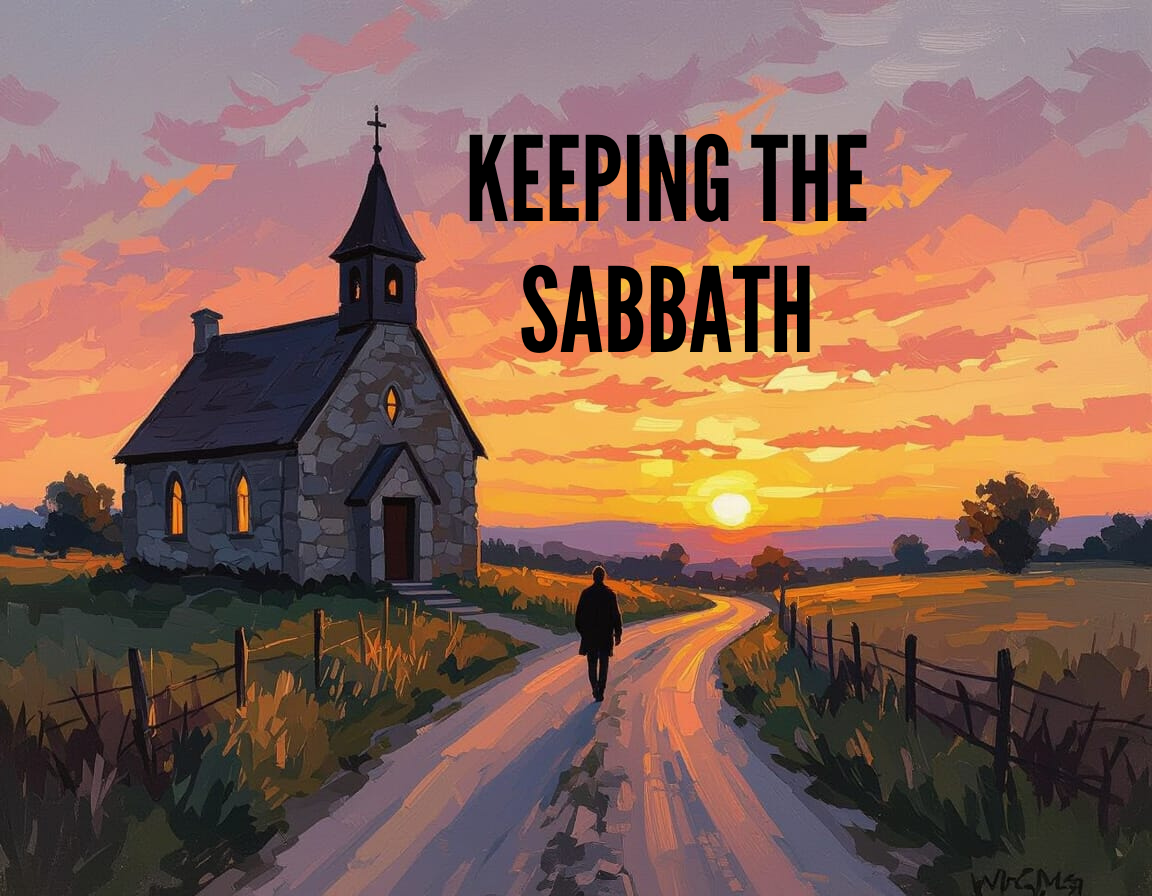
17 Sep Do Christians Keep Sabbath?
Like many things in the Old Testament, they were a physical thing setup by God to help us get at (ie understand) a more complicated concept, which without the initial setup we would not have grasped. Indeed, even with the physical example to use as a metaphor for the bigger thing, many people still do not grasp, and the Sabbath is one such concept.
Hang in as I set some background.
An easier similarity to understand is circumcision which begins as a sign of the covenant to Abraham and a physical obligation in the body for all Abraham’s male children. But this is an example of ‘cutting away the flesh’ and becomes in time what all people must do spiritually, they must cut away the ‘flesh,’ meaning the worldy and ungodly parts of them, so that they are devoted to God.
What is most interesting with the circumcision example is that in the New Testament there are those who in their physical male bodies are circumcised, but are considered uncircumcised and not even the children of Abraham because of the condition of their walk or lack of walk with God.
Jesus told certain Pharisees that they were not the children of Abraham, even though they were physically descended from him and physically circumcised. John 8:39–31.
Later Paul tells the Galatians that if they get themselves circumcised to try to please God, they wjill actually miss out on God. ‘Mark my words! I, Paul, tell you that if you let yourselves be circumcised, Christ will be of no value to you at all.’ Galatians 5:2
So circumcision begins as a physical thing they are to do, but it becomes something with greater meaning. They are then to do the greater thing, which is to circumcise the heart. If Jews or others are circumcised for cultural reasons, or health reasons, or tradition, that is fine, but if they are circumcised to try to earn merit with God, they miss the point.
Now to the Sabbath.
The Sabbath begins as the last day of the week, often thought to be Saturday, and a day of obligatory rest. It was set aside for God, which is what making something holy means. (ie holy means set aside for God.) It was so significant an idea that it was the sign of the Law, and one of the ten commandments. ‘You must observe my Sabbaths. This will be a sign between me and you for the generations to come, so you may know that I am the Lord, who makes you holy.’ Exodus 31:13
But this also is a physical thing that becomes a living metaphor to point to a greater spiritual reality which is Christ, and is found in Christ.
Sabbath is not a day, nor is it taking a break, nor is it the weekend, it is actually faith in Christ. It is coming to the place where you ‘rest’ (ie you sabbath) from your works and start trusting in Jesus for salvation. We see this in the book of Hebrews.
Here is what the writer to the Hebrews wrote. ‘Therefore, since the promise of entering his rest still stands, let us be careful that none of you be found to have fallen short of it. For we also have had the good news proclaimed to us, just as they did; but the message they heard was of no value to them, because they did not share the faith of those who obeyed.’ Hebrews 4:1–2
When it says rest, read Sabbath.
So there were Israelites, who each Saturday had a day off, but according to the New Testament, they failed to find Sabbath with God because they didn’t trust Him.
So it is that when someone places their trust in Jesus, they enter into rest. Jesus himself called people into this sabbath, saying, ‘Come to me, all you who are weary and burdened, and I will give you rest.’ Matthew 11:28
So you can physically keep a Sabbath day, but not have Sabbath in Christ as presumably some do.
How then do you keep the Sabbath?
You come to Christ, with a heart devoted to Him. You place your trust in Him, willing to serve and give of yourself. That man or woman is a sabbath-keeping believer.
But what about the actual day?
As New Testament believers, ever since the days of the early church, we have set aside one day a week for rest and devotion to God. But instead of being the last day of the week, we give Him the first day of the week. There is an example of it with the church at Troas, ‘On the first day of the week we came together to break bread.’ Acts 20:7
Later in the Bible, Paul wrote to the Corinthians about collecting offerings during thier church services, saying ‘On the first day of every week, each one of you should set aside a sum of money in keeping with your income, saving it up, so that when I come no collections will have to be made.’ 1 Cor 16:2
And of course the Apostle John saw the Lord on the first day of the week, which had come to be known as the Lord’s day. ‘On the Lord’s Day I was in the Spirit, and I heard behind me a loud voice like a trumpet.’ Rev 1:10
So as New Testament believers in Christ, we have sabbath through faith in Him. But we also set aside time to gather with the other believers, usually on a Sunday, but often whenever is most practical. We rest from actual working becasue it is practical and wise and gives us time to spend with the Lord. In all of this, trusting not in what we do, but in Him, we grow in our knowledge of God.



No Comments